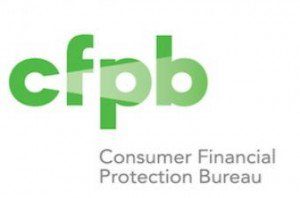 The Consumer Financial Protection Bureau (Bureau) has issued two Notices of Proposed Rulemaking (NPRMs) to address the impending expiration of the Government-Sponsored Enterprises Patch (GSE Patch). The GSE Patch is scheduled to expire in January 2021 or when the GSEs (Fannie Mae and Freddie Mac) exit conservatorship, whichever comes first.
The Consumer Financial Protection Bureau (Bureau) has issued two Notices of Proposed Rulemaking (NPRMs) to address the impending expiration of the Government-Sponsored Enterprises Patch (GSE Patch). The GSE Patch is scheduled to expire in January 2021 or when the GSEs (Fannie Mae and Freddie Mac) exit conservatorship, whichever comes first.
CoreLogic reports that the first NPRM proposes an amendment to the General QM definition to replace the DTI limit with a price-based approach. The second proposes an extension of the Patch until the first amendment takes effect.
“The CFPB’s ATR/QM proposed rulemaking has significant bearing on the balance between homeowner ability to sustain their mortgage payments and broad access to affordable mortgage credit," said Pete Carroll, executive, public policy & industry relations at CoreLogic. "The ATR/QM blog series from CoreLogic seeks to provide policymakers and industry stakeholders alike with evidence-based insights to consider as they deliberate on the important policy questions raised by the proposal, including market sizing, loan performance, underwriting factors, credit availability, and more.”
The Dodd-Frank Act amended the Truth in Lending Act (TILA) to establish ability-to-repay (ATR) requirements for most residential mortgage loans. TILA identifies factors a creditor must consider in making a reasonable and good faith assessment of a consumer’s ATR. TILA also defines a category of loans called qualified mortgages (QMs), which are presumed to comply with the ATR requirements. The Bureau completed an ATR/QM rule that established a general QM standard for loans where the consumer’s debt-to-income (DTI) ratio is 43 percent or less and the loan meets the other statutory QM requirements.
The ATR/QM rule also created the GSE Patch as a temporary QM definition that also provides QM status to certain mortgage loans eligible for purchase or guarantee by either of the GSEs (Temporary GSE QM loans). These Temporary GSE QM loans are eligible for QM status even if the DTI ratio exceeds 43 percent. Last year, the Bureau released an assessment of its ATR/QM Rule and found that Temporary GSE QM loans represent a large and persistent share of mortgage originations. As noted above, the GSE Patch is scheduled to expire soon, and absent regulatory action the Bureau estimates that approximately 957,000 mortgage loans would be affected by the expiration of the GSE Patch. The Bureau estimates that, after the Patch expires, many of these loans would either not be made or would be made but at a higher price.
“The GSE Patch’s expiration will facilitate a more transparent, level playing field that ultimately benefits consumers through promoting more vigorous competition in mortgage markets. The Bureau is proposing to replace the Patch with a price-based approach to QM loans to preserve consumer access to mortgage loans while also making sure consumers have the ability to repay them. The Bureau is committed to ensuring a smooth and orderly mortgage market throughout its consideration of these issues and any resulting transition away from the GSE Patch,” said CFPB Director Kathleen L. Kraninger.

 theMReport.com Your trusted source for mortgage banking news
theMReport.com Your trusted source for mortgage banking news









